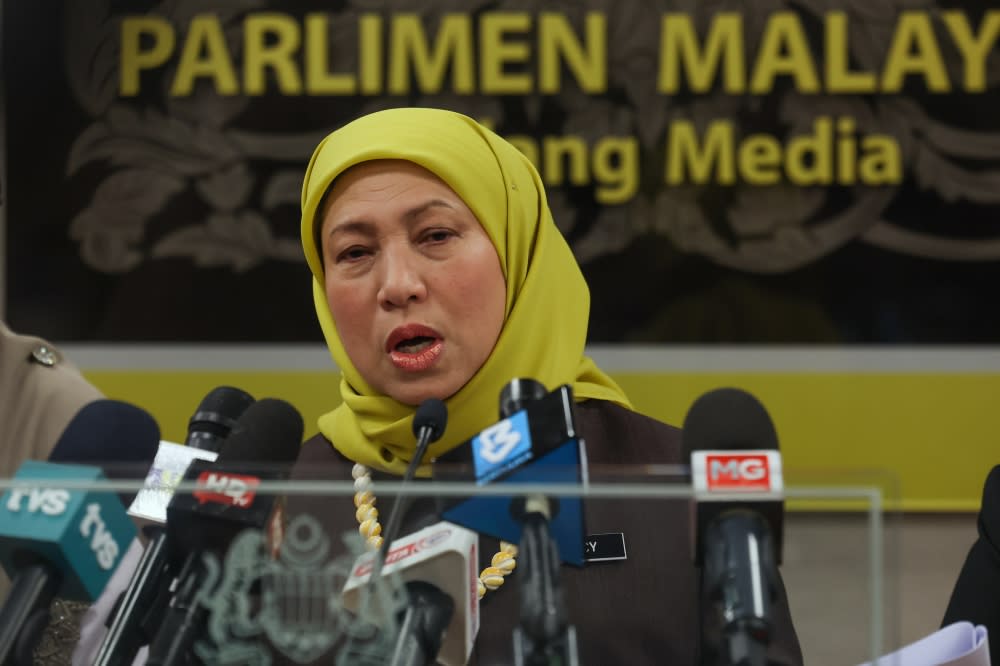Citing devolution of power, Nancy Shukri backs Sarawak's own assessment for Standard 6 pupils

KUALA LUMPUR, Nov 3 — Sarawak's federal ministers said that the state's proposal to introduce its Standard Six assessment exams represents a “devolution of power” in line with the Malaysia Agreement 1963 (MA63).
Women, Family and Community Development Minister Datuk Seri Nancy Shukri told The Star that the primary objective of the proposal is to delegate authority to the state to aid in the streaming of Science and Arts students as they progress to secondary schools.
“Education is also another part of MA63. I support this because I experienced being a student who had to sit for the Common Entrances (Selection) Examination held for Standard Six pupils in Sarawak. I was in the final batch of 1973 before it was abolished the year after.
“It was indeed a very good initiative to train the minds of the children. It is a very good programme for students so that they will be actively involved in science and even in critical art,” she was quoted as saying.
Nancy said she supported the proposal from Sarawak's Minister for Education, Innovation, and Talent Development Datuk Roland Sagah, citing it as a beneficial management system for the state.
Weighing on the same issue, a federal minister from Sarawak who preferred to stay anonymous said it was not a far cry from MA63 for Sarawak to request its own assessment system.
This, he said, was due to the fact that as outlined in the agreement, education and healthcare are areas where the state already possesses a degree of autonomy.
“This proposal is due to a lack of any current proper assessment method. It is not going against the federal government’s education system.
“It is merely a devolution of power to enable the state to have an education system in accordance with its needs, in line with MA63,” he was quoted as saying.
Sagah was reported saying yesterday that Sarawak's proposed Standard Six assessment system is an initiative designed to influence the future course of education for students and is not intended to place excessive burdens on teachers, parents, or students.
He said the system is important, especially in the context of the dual language programme (DLP) for teaching Mathematics and Science in English, which is currently being implemented in Sarawak.
“The assessment will serve as a means to gauge the effectiveness of the DLP, as well as all other initiatives which we have put in place to increase the uptake of STEM (science, technology, engineering and mathematics) subjects in our schools.
“With the assessment in place, we will also be able to identify areas for improvement and implement interventions,” he said in a statement yesterday.
Sagah said he looked forward to working closely with all stakeholders with a special focus on the federal Education Ministry and the state Education Department to ensure the success of the proposed assessment.
He also welcomed Education Minister Fadhlina Sidek's support for the initiative and emphasised the value of the collaborative efforts made by the ministry and department in enhancing the quality of education in Sarawak.
During a press conference held earlier on the same day, Sagah revealed that the proposed assessment would be developed in consultation with the education department.
“This is not in conflict with the federal policy (on education). It is a way for us to improve the education system in our state.
“That’s why we requested for more autonomy (in education),” he was quoted saying by The Star.
Asked if it would be similar to the UPSR examination, Sagah said this was not decided yet.



